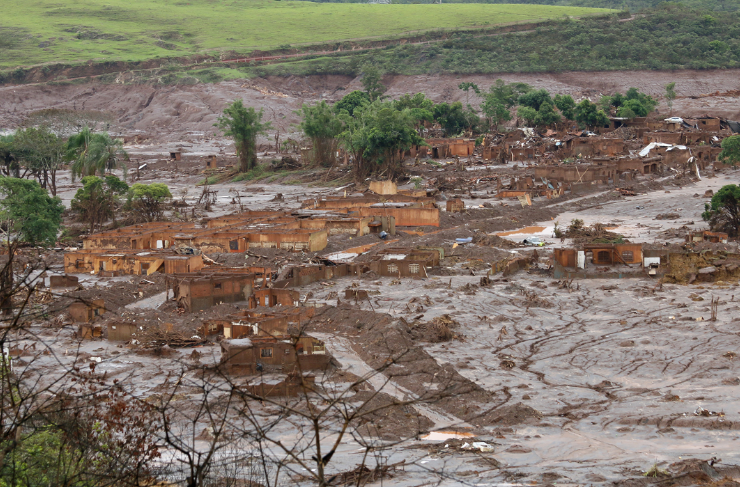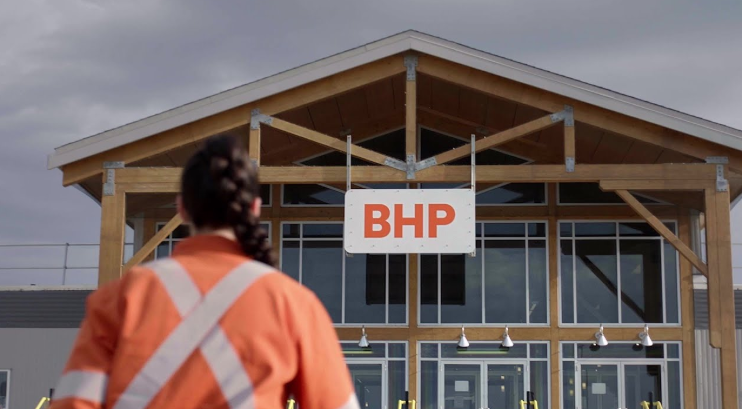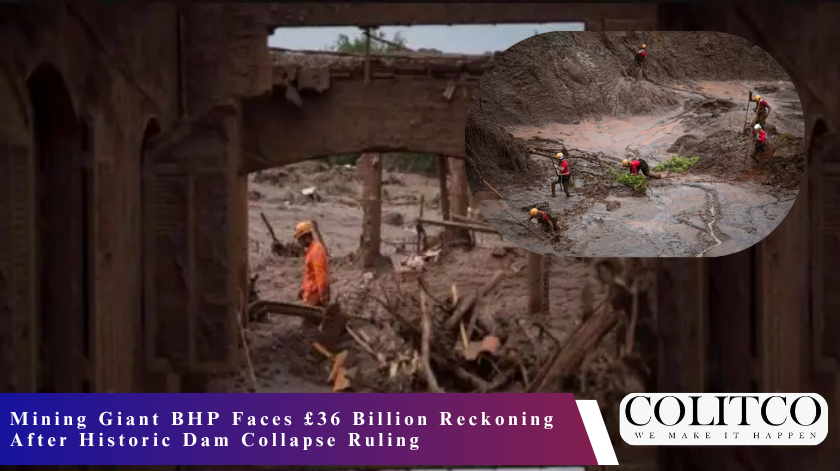A London judge has delivered a devastating blow to mining giant BHP Group (ASX: BHP), ruling the company liable for Brazil’s deadliest environmental catastrophe. The Friday verdict opens the door to what could become one of the largest compensation payouts in corporate history.
High Court Justice Finola O’Farrell found BHP responsible for the 2015 Fundão dam collapse in Mariana, Brazil, that killed 19 people and unleashed over 40 million tonnes of toxic waste into the Doce River. The 222-page judgment marks the first time any company has been held accountable for the disaster, a full decade after it devastated communities.
The Court’s Damning Assessment
Justice O’Farrell ruled that BHP is strictly liable as a “polluter” under Brazilian Environmental Law. She determined the company’s negligence and failure to conduct proper risk assessments directly caused the catastrophe.
“The risk of collapse of the dam was foreseeable,” O’Farrell wrote. “It is inconceivable that a decision would have been taken to continue raising the height of the dam in those circumstances and the collapse could have been averted.”
The judge found that BHP, despite owning 50% of Samarco (the Brazilian company operating the mine), exercised substantial control over operations:
- Participated in strategic decisions and day-to-day operations
- Assumed responsibility for risk assessment and management
- Substantially invested in and profited from the joint venture
- Failed to implement recommended engineering studies and remediation

600,000 Claimants Seek Historic Compensation
The class-action lawsuit represents over 600,000 Brazilians, 31 municipalities, and approximately 2,000 businesses. Claimants are seeking £36 billion (A$74 billion) in damages, though Friday’s ruling only established liability.
Gelvana Rodrigues, whose seven-year-old son Thiago died in the mudslide, called it a historic victory. “The judge’s decision shows what we have been saying for the last 10 years: it was not an accident, and BHP must take responsibility for its actions,” she said.
Monica dos Santos, from the Commission for Those Affected, added: “We had to cross the Atlantic Ocean and go to England to finally see a mining company held to account.”
Environmental Devastation Still Felt Today
The November 5, 2015, collapse released enough toxic sludge to fill 13,000 Olympic-sized swimming pools. The disaster:
- Destroyed the village of Bento Rodrigues completely
- Killed 14 tonnes of freshwater fish
- Contaminated 600 kilometres of the Doce River
- Left thousands homeless and displaced
- Devastated the sacred river of the Krenak Indigenous people
The Doce River, revered as a deity by Indigenous communities, has yet to recover fully from the contamination.
BHP’s Response and Market Impact
BHP immediately announced plans to appeal the ruling. Brandon Craig, BHP’s President Minerals Americas, stated that 240,000 claimants “have already been paid compensation in Brazil,” suggesting this would significantly reduce the UK claim’s size.

BHP Group faces potential £36 billion in damages following UK High Court liability ruling
The company’s shares responded negatively across global markets:
- Sydney: Closed down 1.3% at A$42.75
- London: Fell 2.4% to £20.82
- Johannesburg: Lost 2.6% to R469.30
The ruling comes amid BHP’s strategic transition from iron ore to copper production, adding pressure to an already challenging period for the mining giant.
Previous Settlement Agreements
In October 2024, just days before the UK trial began, Brazil’s federal government reached a separate $30 billion settlement with Samarco, BHP, and Vale. Under that agreement, the companies committed to paying 132 billion reais over 20 years for social and environmental repairs.
BHP had argued the UK action duplicates Brazilian proceedings. However, victims’ lawyers maintained Brazilian compensation was inadequate and legal proceedings took too long.
What Happens Next
The case now enters its second phase, with a damages trial scheduled for October 2026 to March 2027. This stage will determine:
- Individual compensation amounts
- Causation between the collapse and specific losses
- Municipal and business damages
- Environmental restoration costs
The limitation period for bringing claims extends until at least September 2029, meaning additional claimants could still join. BHP’s appeal, if permitted by the court, could further delay proceedings.
A potential third trial phase may require individual claimants to prove specific damages before receiving payments, possibly pushing final resolutions past 2028.
Also Read: Westpac Forced to Pay $50 Million After 11-Year Underpayment Scandal Rocks Major Bank
Broader Implications for Mining Industry
The ruling sends shockwaves through the global mining sector, establishing precedent for parent company liability in environmental disasters. Legal experts note the judgment demonstrates that:
- Parent companies cannot hide behind joint venture structures
- Control and profit-sharing create legal responsibility
- Environmental compliance failures have severe consequences
- Corporate accountability extends across international borders
The decision aligns with growing ESG requirements pressuring mining companies worldwide to improve environmental and social governance.
For BHP, already navigating competitive pressures and commodity price volatility, the ruling represents another challenge in maintaining its position as a global mining leader.
Alicia Alinia, CEO of Pogust Goodhead (the law firm representing claimants), stated: “Today’s ruling delivers long-overdue justice to the thousands whose lives were torn apart, and it sends an unmistakable message to multinational companies around the world: You cannot disregard your duty of care and walk away from the devastation you caused.”
As Brazil prepares to host the UN COP30 climate summit, the ruling serves as a stark reminder of industry-friendly policies that have compromised environmental protection, according to advocacy groups.











